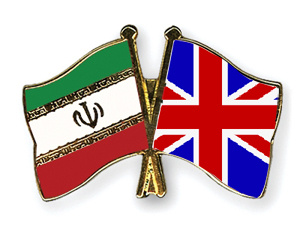Ramifications of Limiting Relations with Britain

In interviews with Mohammad Rouhi Sefat, Iran’s former ambassador to Australia and economic expert, and Dr. Mahdi Taghavi, international economics analyst, Iranian Diplomacy has discussed Tehran-London financial ties.
Mohammad Rouhi Sefat believes that limiting economic exchanges with Britain is not an effective solution: “those who want to import British goods will do it through the Dubai channel, of course with a higher price. Citizens are the ones who have to pay the price this reduction of the level of ties” he said. The former ambassador also added that: “experience has shown that trust-building through negotiations, not limiting or severing diplomatic and economic ties is the solution to such disputes”.
On the possibility of Rouhi Sefat also stated that: “naturally, after deciding to demote economic ties, the government will prescribe state-run and private organizations and companies to cut down their transactions. That wouldn’t be effective however. If an enterprise needs commodities or services which should be obtained from Britain, it would purchase it via middlemen, though with a higher price”.
On the impact of the cut-down on nuclear negotiations and EU stance, Rouhi Sefat said: “definitely reducing the level of relations will affect nuclear talks and Iran’s diplomatic ties with other European states. EU members have proved to be united in the international scene. Iran should be prepared for that. As I said, the most effective approach is trust-building through negotiations”.
International economic expert Dr. Mahdi Taghavi pointed to the impact of the decision on Iran’s key oil industry: “oil products are Iran’s principal export to Britain. Downgrading economic relations means reduction of oil export to this country. Britain is a better trade partner compared with China, Russia, India, Bangladesh and similar countries”.
Taghavi added that: “Britain has now shifted the focus of its economy to fiscal services. According to economy principles cooperation with powerful trade partners is an advantage. Depriving ourselves from financial transaction with a country like Britain could be detrimental. On the other hand, Britain can easily replace Iran with other countries”.
Pointing to the likely outcomes of cutting down economic transactions with Britain, Taghavi said: “in many branches, the Iranian economy is interdependent on global economy. State decision-makers may believe that losses incurred from limiting ties may be less than what is sustained from continuing relations. However, it is the ordinary citizens who will be deeply affected by such decisions”. He added that: “this could be a correct decision if sanctions or reduction of financial ties would boom Iranian industry and economy. But past years have proved such a thing will not happen”.

